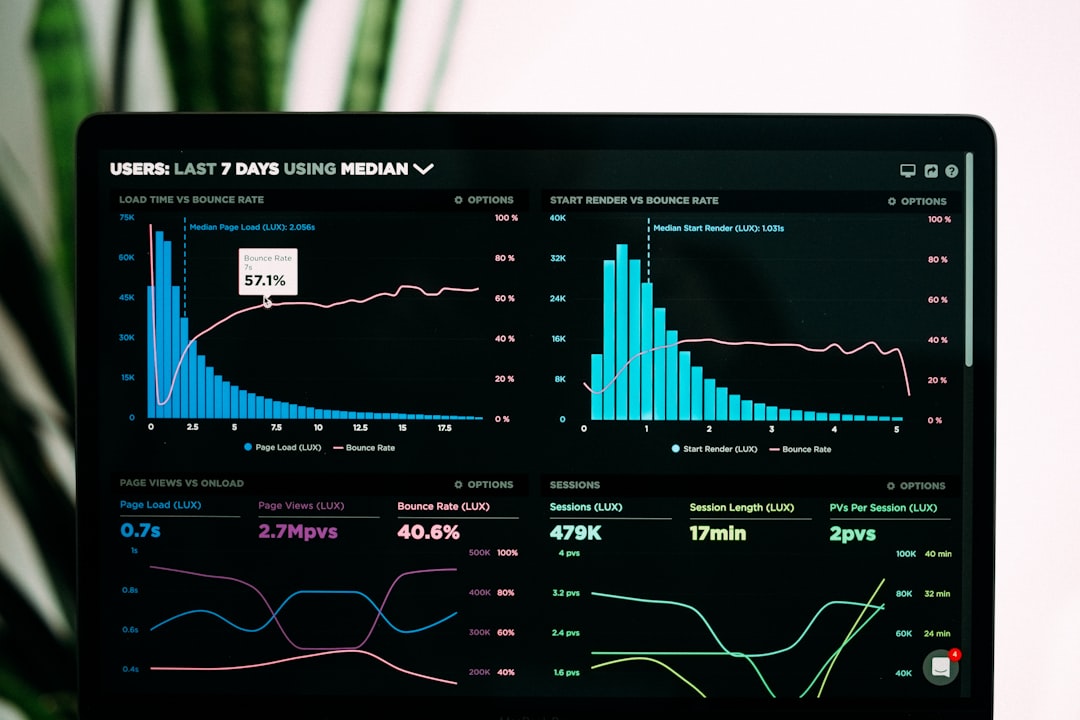Unlock encrypted content
Please enter your SSCE key to initiate on-the-fly decryption.
Decryption key: (Click cancel if you don't have the key)
Copied link to clipboard.
This feature is unavailable for free accounts. Upgrade now and enjoy all Premium benefits.
Go Premium!
This feature is unavailable for free accounts. Upgrade now and enjoy all Premium benefits.
Go Premium!
Please open this page in browser ( Google Chrome or Safari ) to use this feature.
Open In Browser
The Future of Data Storage: from Virtual Reality to Brain-Machine Interfaces.
×
Random related video for this blog.
Copied share link to clipboard.
June 7, 2023
Data storage has come a long way in the last few decades. From floppy disks to cloud storage, the evolution of technology has revolutionized the way we store and access data. Today, we have access to an array of data storage options that cater to our specific needs, with cloud storage being the most popular. However, with the emergence of new technologies like nanotechnology and brain-machine interfaces, the future of data storage is set to change dramatically. In this article, we will explore some of the latest trends in data storage, including virtual reality, augmented reality, and the Internet of Everything (IoE).
Virtual reality (VR) and augmented reality (AR) are two technologies that are rapidly gaining popularity. VR allows users to enter a completely immersive digital world, while AR enhances the real world with digital elements. These technologies require massive amounts of data storage to function effectively. For instance, VR requires high-resolution 3D models, audio, and video files to create an immersive experience for the user. Similarly, AR requires real-time data processing and storage to overlay digital elements onto the real world.
To cater to the growing demand for VR and AR storage, data centers are now offering specialized storage solutions. These solutions provide high-speed access to data, allowing for real-time processing and storage. Moreover, these solutions are designed to handle large files, making them ideal for storing VR and AR content. FileLu cloud storage is one such solution that offers large file transfer capabilities, allowing users to send files up to 250 GB in size. This makes it an ideal choice for VR and AR content creators.
The Internet of Everything (IoE) is a concept that refers to the growing network of interconnected devices and objects. This network includes everything from smartphones to home appliances and even cars. As the number of devices connected to the internet continues to grow, the amount of data generated is also increasing exponentially. This data needs to be stored and processed in real-time to enable the IoE to function effectively.
To cater to the growing demand for IoE data storage, data centers are now offering online data access solutions. These solutions allow users to access their data from anywhere in the world, making it easy to manage and process data in real-time. Moreover, these solutions offer high-speed data transfer, making it possible to transfer large files quickly and efficiently.
Nanotechnology is a field of science that deals with the manipulation of matter on an atomic and molecular scale. This technology has the potential to revolutionize data storage by enabling the creation of ultra-compact data storage devices. These devices can store massive amounts of data in a small space, making them ideal for use in portable devices like smartphones and tablets.
One example of nanotechnology data storage is DNA storage. DNA is a highly efficient data storage medium that can store massive amounts of data in a small space. Moreover, DNA is incredibly durable, with data remaining intact for thousands of years. Researchers are currently working on developing DNA-based data storage devices that could store hundreds of terabytes of data in a single gram of DNA.
Data migration is the process of transferring data from one storage device to another. This process is necessary when upgrading to a new storage device or when moving data to the cloud. Data migration can be a time-consuming and challenging task, especially when dealing with large amounts of data.
To make data migration easier, data centers are now offering simple cloud storage platforms that allow users to upload and download data easily. These platforms offer high-speed data transfer, making it possible to migrate large amounts of data quickly and efficiently. Moreover, these platforms offer encryption file sharing, ensuring that data remains secure during transfer.
Data storage is an essential aspect of modern life, and with the emergence of new technologies, the future of data storage is set to change dramatically. From virtual reality to brain-machine interfaces, the possibilities are endless. However, with these new technologies come new challenges, and data centers must adapt to cater to the growing demand for data storage. FileLu cloud storage is one such solution that offers a range of storage options, from online backup to large files transfer. With plans ranging from 10 GB to 500 TB, FileLu is an ideal choice for individuals and businesses alike.
FileLu cloud storage offers a range of features, including file transfer, online backup, encryption file sharing, and large files transfer. With premium plans starting at just $2.50 per month, FileLu is an affordable and reliable choice for anyone looking for a simple cloud storage platform. By embracing new technologies and offering innovative solutions, FileLu is leading the way in the future of data storage.
By Amelia Isabella.
Email: [email protected]
Related | Popular
| Latest
Introduction
Data storage has come a long way in the last few decades. From floppy disks to cloud storage, the evolution of technology has revolutionized the way we store and access data. Today, we have access to an array of data storage options that cater to our specific needs, with cloud storage being the most popular. However, with the emergence of new technologies like nanotechnology and brain-machine interfaces, the future of data storage is set to change dramatically. In this article, we will explore some of the latest trends in data storage, including virtual reality, augmented reality, and the Internet of Everything (IoE).
Virtual Reality and Augmented Reality Storage
Virtual reality (VR) and augmented reality (AR) are two technologies that are rapidly gaining popularity. VR allows users to enter a completely immersive digital world, while AR enhances the real world with digital elements. These technologies require massive amounts of data storage to function effectively. For instance, VR requires high-resolution 3D models, audio, and video files to create an immersive experience for the user. Similarly, AR requires real-time data processing and storage to overlay digital elements onto the real world.
To cater to the growing demand for VR and AR storage, data centers are now offering specialized storage solutions. These solutions provide high-speed access to data, allowing for real-time processing and storage. Moreover, these solutions are designed to handle large files, making them ideal for storing VR and AR content. FileLu cloud storage is one such solution that offers large file transfer capabilities, allowing users to send files up to 250 GB in size. This makes it an ideal choice for VR and AR content creators.
The Internet of Everything (IoE)
The Internet of Everything (IoE) is a concept that refers to the growing network of interconnected devices and objects. This network includes everything from smartphones to home appliances and even cars. As the number of devices connected to the internet continues to grow, the amount of data generated is also increasing exponentially. This data needs to be stored and processed in real-time to enable the IoE to function effectively.
To cater to the growing demand for IoE data storage, data centers are now offering online data access solutions. These solutions allow users to access their data from anywhere in the world, making it easy to manage and process data in real-time. Moreover, these solutions offer high-speed data transfer, making it possible to transfer large files quickly and efficiently.
Nanotechnology Data Storage
Nanotechnology is a field of science that deals with the manipulation of matter on an atomic and molecular scale. This technology has the potential to revolutionize data storage by enabling the creation of ultra-compact data storage devices. These devices can store massive amounts of data in a small space, making them ideal for use in portable devices like smartphones and tablets.
One example of nanotechnology data storage is DNA storage. DNA is a highly efficient data storage medium that can store massive amounts of data in a small space. Moreover, DNA is incredibly durable, with data remaining intact for thousands of years. Researchers are currently working on developing DNA-based data storage devices that could store hundreds of terabytes of data in a single gram of DNA.
Data Migration
Data migration is the process of transferring data from one storage device to another. This process is necessary when upgrading to a new storage device or when moving data to the cloud. Data migration can be a time-consuming and challenging task, especially when dealing with large amounts of data.
To make data migration easier, data centers are now offering simple cloud storage platforms that allow users to upload and download data easily. These platforms offer high-speed data transfer, making it possible to migrate large amounts of data quickly and efficiently. Moreover, these platforms offer encryption file sharing, ensuring that data remains secure during transfer.
Conclusion
Data storage is an essential aspect of modern life, and with the emergence of new technologies, the future of data storage is set to change dramatically. From virtual reality to brain-machine interfaces, the possibilities are endless. However, with these new technologies come new challenges, and data centers must adapt to cater to the growing demand for data storage. FileLu cloud storage is one such solution that offers a range of storage options, from online backup to large files transfer. With plans ranging from 10 GB to 500 TB, FileLu is an ideal choice for individuals and businesses alike.
FileLu cloud storage offers a range of features, including file transfer, online backup, encryption file sharing, and large files transfer. With premium plans starting at just $2.50 per month, FileLu is an affordable and reliable choice for anyone looking for a simple cloud storage platform. By embracing new technologies and offering innovative solutions, FileLu is leading the way in the future of data storage.
By Amelia Isabella.
Email: [email protected]
Related
The Future of File Management: Real-Time Collaboration and Biometric Authentication.
May 31, 2023
Read More
Popular
Latest
The Future of Digital Transformation: Exploring Smart Homes, Efficient File...
November 30, 2025
Read More
Exploring the Benefits of Cloud Storage and Innovative Technologies in...
November 26, 2025
Read More
The Future of Technology: Exploring Biohacking, Space Tourism, and Digital...
November 23, 2025
Read More
The Future of File Sharing: Streamlined Workflows for Photographers and...
November 19, 2025
Read More
Exploring the Intersection of Technology: From Cybersecurity to Augmented Reality...
November 16, 2025
Read More
The Future of File Management: Embracing Edge Computing and Efficient...
November 12, 2025
Read More
The Future of File Sharing: Exploring User-Friendly Solutions and Data...
November 5, 2025
Read More
The Future of Cloud Storage: How FileLu Empowers Creative Professionals...
November 2, 2025
Read More
The Future of Autonomous Technologies: Innovations in Robotics, File Sharing,...
October 29, 2025
Read More
Emerging Technologies Revolutionizing File Management: From Li-Fi to Robust Collaboration...
October 26, 2025
Read More
Emerging Technologies: Exploring the Impact of File Access Auditing, Genetic...
October 19, 2025
Read More
The Future of Data Storage: Exploring Advanced Encryption, Mobile Integration,...
October 5, 2025
Read More
Exploring the Future of Data Management: Security, Efficiency, and Cognitive...
September 28, 2025
Read More
Revolutionizing Data Management: Innovations in Storage, Security, and Sustainable Technology.
September 24, 2025
Read More

























